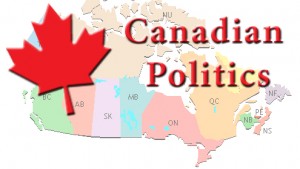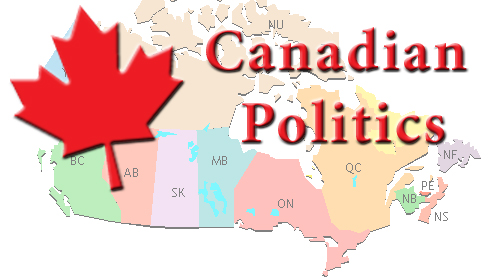 THUNDER BAY – Editorial – With the advance polls on the weekend and the actual election date rapidly approaching, it is time to ruminate on the federal election and the role of the Northwest. Given the recent visits of federal leaders like so many wise men dispensing gifts, it would appear that more than the usual amount of attention is being paid to the Northwest. Over the course of the last week, both Stephen Harper and Jack Layton have visited Thunder Bay while Michael Ignatieff is due on Monday. It would appear from all this attention that the main parties view these seats as fairly contestable despite the fact that they were won by the NDP with fairly large margins last time around.
THUNDER BAY – Editorial – With the advance polls on the weekend and the actual election date rapidly approaching, it is time to ruminate on the federal election and the role of the Northwest. Given the recent visits of federal leaders like so many wise men dispensing gifts, it would appear that more than the usual amount of attention is being paid to the Northwest. Over the course of the last week, both Stephen Harper and Jack Layton have visited Thunder Bay while Michael Ignatieff is due on Monday. It would appear from all this attention that the main parties view these seats as fairly contestable despite the fact that they were won by the NDP with fairly large margins last time around.
The interest on the part of the Conservatives may seem surprising given that both ridings have returned mainly Liberals or NDP for well over a generation.
Yet, the Conservatives managed to make a breakthrough in the Kenora riding during the last election and may see the two Thunder Bay ridings as another potential breakthrough. After all, despite the fact they usually vote Liberal or NDP, these ridings are actually quite “conservative” when it comes to issues like gun control, crime and other social policy. At the same time, both the Liberals and the NDP see these ridings as their traditional electoral territory and are also lavishing their attention. More to the point, with a minority government at present and the potential for another minority quite strong, every seat counts and hence the attention.
While it is flattering to get attention, it is also useful to see if the attention amounts to anything substantial in terms of attention to regional issues.
One of the things I would like to see addressed by each of the federal parties in the current election is their view on the transportation infrastructure in the region – in particular the fact that the vital “zone of transit” role of this region on the east-west axis is compromised by the poor state of the highway. I would like to see a long-term partnership plan between the federal and provincial governments to upgrade the highway to four-lane status given that the increasing obstacles at the U.S. border make our own east-west link all the more important. Some may argue that in the age of high gas prices and environmental awareness, we should not be investing in more roads but quite frankly I do not see any alternative to road transportation emerging in the near future and new vehicles are becoming more fuel-efficient and environmentally friendly all the time. The federal government needs to play a leadership role given the nation-building aspect of a national highway system.
In addition, given that Northern Ontario borders on Hudson and James Bay and the Arctic regions of Canada, what role can we in Northwestern Ontario play with respect to Arctic sovereignty? It may sound far-fetched but Thunder Bay is at the east-west cross-roads of the country, is a link between road, water, air and rail transportation and is a logical staging point for a rapid deployment force that can quickly access the Arctic region as well as move east or west in times of a national emergency. Given the low-cost of land and housing in the region, it would be easy to build the military infrastructure as well as be a reasonable place to live for the forces stationed in the region. This is a vision that needs a champion and it would be ideal for the federal parties to consider how Thunder Bay’s role as a security linchpin in Canada’s military and rapid response infrastructure could be built.
Finally, what more can the Federal government do with respect to promoting Canada’s forest products and in particular Northwestern Ontario’s forest industry to new markets around the world? Trees are a renewable resource and given population growth around the world particularly in the Asia-Pacific area, the demand for wood frame housing is a logical choice. Such an initiative could go a long way in helping our ravaged forest sector recover and once again become an important regional wealth generator.
Livio Di Matteo
 Livio Di Matteo is an economist in Thunder Bay, Ontario specializing in public policy, health economics, public finance and economic history. Livio Di Matteo is a graduate of the Fort William Collegiate Institute (1898-2005) whose school motto “Agimus Meliora” has served as a personal inspiration. Livio Di Matteo holds a PhD from McMaster University, an MA from the University of Western Ontario and an Honours BA from Lakehead University. He is Professor of Economics at Lakehead University where he has served since 1990. His research has explored the sustainability of provincial government health spending, historical wealth and asset holding and economic performance and institutions in Northwestern Ontario and the central North American economic region. His historical wealth research using census-linked probate records is funded by grants from the Social Sciences and Humanities Research Council of Canada. He has constructed, assembled and analyzed nearly 12,000 estate files for Ontario over the period 1870 to 1930. Livio Di Matteo writes and comments on public policy and his articles have appeared in the National Post, Toronto Star, the Winnipeg Free Press and Thunder Bay Chronicle-Journal and NetNewsledger.com. Livio Di Matteo has had an entry in Canadian Who’s Who since 1995.
Livio Di Matteo is an economist in Thunder Bay, Ontario specializing in public policy, health economics, public finance and economic history. Livio Di Matteo is a graduate of the Fort William Collegiate Institute (1898-2005) whose school motto “Agimus Meliora” has served as a personal inspiration. Livio Di Matteo holds a PhD from McMaster University, an MA from the University of Western Ontario and an Honours BA from Lakehead University. He is Professor of Economics at Lakehead University where he has served since 1990. His research has explored the sustainability of provincial government health spending, historical wealth and asset holding and economic performance and institutions in Northwestern Ontario and the central North American economic region. His historical wealth research using census-linked probate records is funded by grants from the Social Sciences and Humanities Research Council of Canada. He has constructed, assembled and analyzed nearly 12,000 estate files for Ontario over the period 1870 to 1930. Livio Di Matteo writes and comments on public policy and his articles have appeared in the National Post, Toronto Star, the Winnipeg Free Press and Thunder Bay Chronicle-Journal and NetNewsledger.com. Livio Di Matteo has had an entry in Canadian Who’s Who since 1995.
This article was originally posted on Livio Di Matteo’s NORTHERN ECONOMIST Blog at http://ldimatte.shawwebspace.ca.

